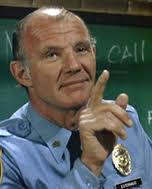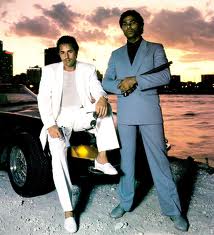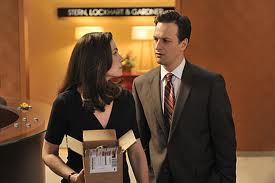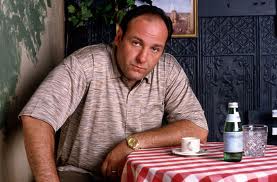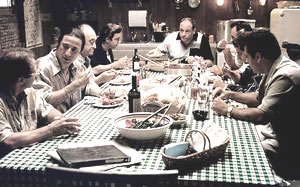As a teenager in the late eighties I watched my share of American TV series. Then as now, television was largely the monopoly of American culture with the exception of a few locally produced and worthy adaptations of Spanish literary classics and the occasional release of highly theatrical BBC dramas. As a result, thanks to the excellent Hill Street Blues I had to, among other lessons that are only useful to feed the pop culture idiot savant in me, learn to decipher the unknown code underlying the snappy repartee of cops and lawyers battling their respective corners of law enforcement in New York City.
Watching LA Law I also learnt a few lessons regarding the combination of feathery hair, shoulder pads, tan tights, and clip-on earrings (mainly not to wear them all at the same time) that have served me sartorially for a couple of decades now. Although I must confess that, as a child, I used to consider the un-clipping of the said earrings to take a phone-call the height of sophistication. Again, to my surprise, the judiciary world in LA revolved around a heady palette of pastel colours, far removed from the moral black and whites that one would expect in the presence of justice. I confess I still have not figured out, however, how one plain clothes detective in Miami, namely Sony Crockett in Miami Vice, could own a Ferrari Testarossa without being flagrantly corrupt, nor, more urgently, how he could be in pursuit of criminals, wearing loafers with no socks, without tripping at every move.
The quality of TV series has exponentially improved since and I will spare you yet another article about the HBO-led renaissance of the last decade. The series I am currently watching, The Good Wife, a thought-provoking crime and legal drama, has dispensed with the inoffensive pastels of LA Law, to emphasise the moral greys that sully the conduct of those involved in the legal and political systems in Chicago. One thing has not changed, though, and that is the alarmingly poor dietary choices of characters in crime and legal dramas. As a teenager, my parents and I mined the “walking and talking” scenes of American series for laughs. Could these people ever stop on their tracks for a minute to have a conversation? And what was that strange tick they had of lifting things (a folder from a desk, a ringing phone from its hook, a jacket from a chair) as they moved along firing one-liners at their equally kinetic adversaries? Most hilarious was the tendency not to eat at all or, when compelled by what must have been pangs of near starvation, to wash a stand-bought hot dog with a coffee as they marched down some skyscraper-lined avenue in pursuit of a greater truth or a bigger lie.
I admire American culture in many ways: its greatest writers, filmmakers, and now TV writers, have produced work that is simultaneously compelling, complex and often a direct challenge to its citizens’ self-perception. There is, however, an aspect of American culture that I instinctively link with the sterility of corporations and the heartlessness of capitalism that manifests itself in the perennial lack of food outlined above. I don’t think this is a conscious motif in American TV writing but when I watch the characters in The Good Wife go hungry from one episode to the next, I realise how poorly I would fit in their milieu: the hunger for power, money, and status that oils the capitalist machine leaves me cold. I am afraid I would always insist on getting lunch and being home for dinner.

